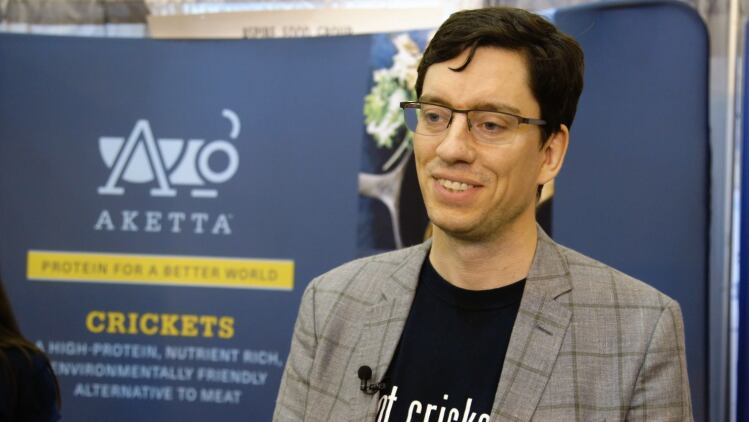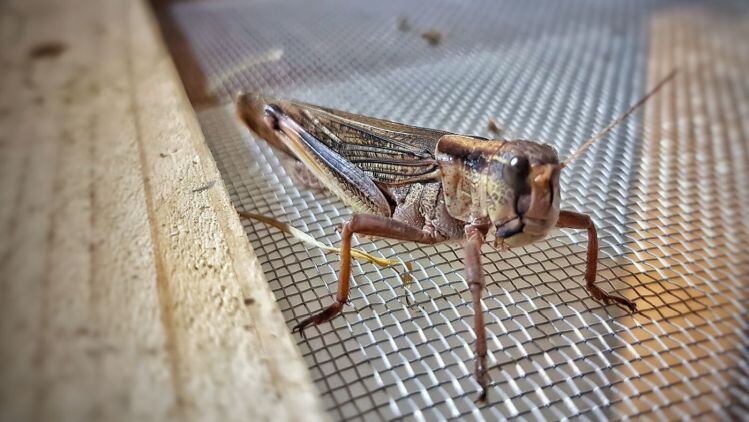Crowley - who admits he’s frustrated by the pace of growth in the US edible insects category while other ‘alternative proteins’ have gained traction more rapidly - may well re-enter the bar category, but says it’s not at the top of the priority list right now as he works with a consortium* of players to get a new insect farming operation off the ground in Indonesia. (Read more about Chapul Farms HERE.)
While persuading Americans to get past the ‘ick’ factor has presented challenges for pioneers in the space, the market for edible insects in aquaculture and poultry feed is really taking off, observed Crowley, who said the first in a series of “massive” solar-powered insect farming operations “built on top of piles of organic waste that would otherwise go to landfill or be burned” should become operational in Indonesia shortly.
“Black soldier flies [Hermetia illucens] are scaling the fastest round the world. In the past 18 months more than $500m has been invested in insect farming and most of that has gone towards black solider flies. For what we’re doing there will be ongoing construction of a series of facilities in Indonesia.
"Our first 50 Ha facility will commence in Q3 of this year, and by 2023, will produce 200,000 tons of BSFL [black soldier fly larvae] annually."
Edible insects in aquaculture
When it comes to aquaculture, he added, it’s becoming increasingly clear that feeding farmed fish a diet of fishmeal and fish oil from wild-caught fish is fundamentally unsustainable, and the industry urgently needs to find alternative solutions.
Insects, which are a complete protein source but also contain the coveted long-chain omega-3 fatty acids (unlike soy and other plant proteins), make an ideal alternative if you can find a consistent - and sustainable - food source for them, said Crowley.
“We’re using a cocktail of naturally occurring fungi to do a pre-fermentation of the [organic] waste [from palms] to increase the protein content and accelerate the digestion. We’re working with several partners including the Fraunhofer Institute, which is doing incredible work with the microbiome of insects; there are some really cool studies that show that feeding them insects can benefit the immunological health of the fish.”
Black soldier fly larvae can be fed on agricultural waste and express a wide spectrum of antimicrobial peptides, depending on the nature of the waste stream, he said.
“So we can feed them different diets and have different peptides expressed for say a trout versus a laying hen.”
He added, "Our focus [for the new farming operation] has been less on automation, and more on leveraging the 400 million years of evolutionary biology that has gone into the gut biome of insects. It's not just the discovery of individual beneficial microbes, but leveraging the entire ecosystem of microbes inside each insect, that has evolved to work synergisticly together as nature's most powerful bio-processors."
This is not an admission of defeat
So is the pivot to animal feed an admission of defeat for Chapul - the creator of the world's first cricket protein bar - when it comes to edible insects for humans?
“I definitely wouldn’t say it’s an admission of defeat,” said Crowley.
“The original mission was to grow the industry. [When Chapul started in 2012] there was no such thing as a consumer packaged product [containing edible insects], so we created that out of necessity to grow the industry as I thought growing it from the market side would make the most sense.
“Now that that market exists, even though it is growing at a rate that is frustrating, it is still growing, even without our participation, so now the largest limitation to growth is in the supply chain and the ability of the supply chain to scale, so that’s where the largest need is.
“Even clouded by all that fear, I think that we are at a tipping point. It takes a leap of faith and if people can get over that fear of the unknown we are here to work with them. If you’re interested in growing protein with 1,000 times less land than soy that can be raised on the back of waste products [to feed the insects], then this is the industry to be in.”
- Read more about the use of insects in animal feed at our sister title FeedNavigator.
*Some of the consortium members include The Fraunhofer Institute; FERA, which led the PROteINSECT project in the EU; Entohack, which is leading BSF farming technologists; project development leader AEI (Alternative Energy Investments); Chapul Farms, and several other international development companies.
Watch Pat Crowley's recent TEDx talk:
So can black soldier fly larvae (BSFL) provide a complete feed solution for fish and poultry?
"The answer to that is highly dependent on the species of fish," said Crowley. "BSFL can be used as a 100% replacement for fish meal in salmon diets, which is our intent with both salmon and trout. However, we have piloted tilapia in smallholder farms in Africa, raised entirely on BSF (raised on-site, entirely on the farm's organic 'waste.')
"For poultry, it is being used as a 1:1 substitution for soymeal in bulk feeds, although the immunological benefits are also being leveraged to replace or reduce antibiotic use."





